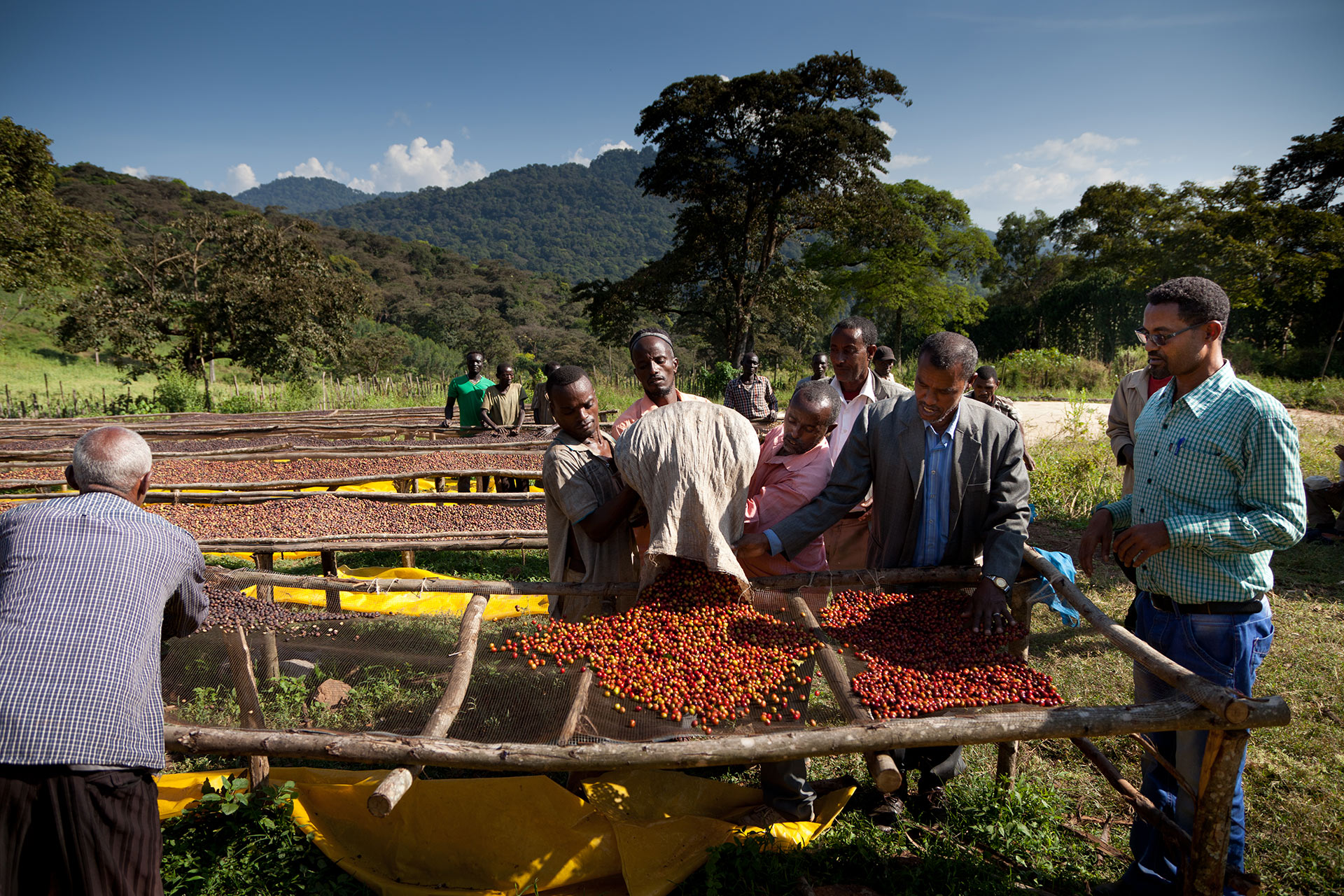
WCC-PFM Project Design
Project Aim
The overall aim of the project is to contribute to the conservation of coffee biodiversity through the application of fine-tuned PFM procedures and to achieve sustainable ways of conserving this biodiversity in situ with joint (community and government) management and benefit sharing mechanisms.
The project’s specific objective is to promote, fine-tune and apply PFM procedures, with improved livelihoods through forest enterprise development and incentive payments, such as carbon payments, and so develop a stable relationship between government organizations and communities for in situ coffee biodiversity protection.
There is also a focus on supporting the development of existing and new institutions at the community level and strengthening them. In addition, links are being developed with private sector traders and cooperatives in order to better link producers to domestic and international markets.
The intention is to ensure that local groups have the necessary skills and experience to be self-sufficient and self-sustaining in the activities covered by the project in the long term and to be able to obtain advisory support from the local government staff.
Approach
The project works with local communities and government officials in the application of fine-tuned PFM procedures in order to maintain the stands of wild coffee. Specific aspects of the Project’s approach include:
- Empowerment of communities to own and manage the forest for their own benefit and to protect and maintain national resources, notably the wild coffee genetic resources;
- Facilitating the communities and government to develop and undertake lead activities, with flexible management based on self-monitoring and needs assessment;
- Capacity building of communities and their organisations as well as government staff in forest management, value chain development and organisational development;
- Landscape approach - taking account of the linkages between different components in the landscape, homesteads and back yard gardens, field and grazing land, intensively managed coffee forest and natural forest with limited disturbance of the wild coffee;
- Gender and minority sensitivity: equal opportunities for different stakeholders;
- Use of field experience in support of policy development.
Beneficiaries
- The local community: over 30,000 people, living in or near to the forest containing wild coffee plants;
- The project works directly with over 5700 families who are involved in Forest Management Groups (FMGs) and co-operatives established by the project;
- Women benefit from protection of the forest, reducing the burden of firewood and water collection. They and minority ethnic community members are included in the operations and leadership of the forest management organisations;
- Other donor projects, Civil Society Organisations/ NGOs and education centres involved in PFM, natural resource and biodiversity issues, and in situ conservation initiatives in the country and more widely;
- The global trading and coffee drinking community which benefits from the conservation of critically important wild coffee genetic resources.
